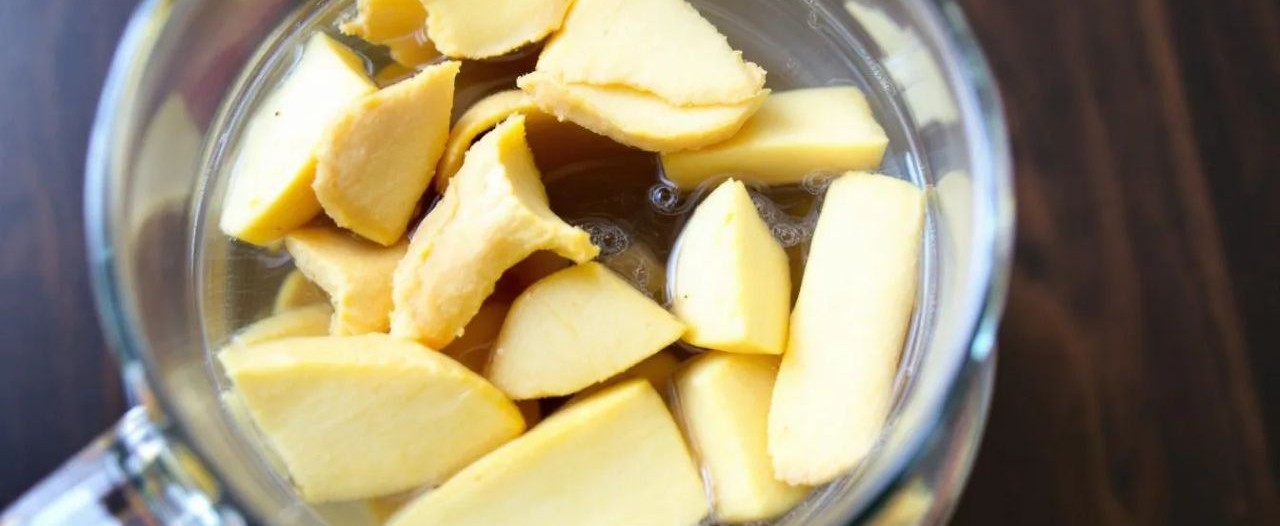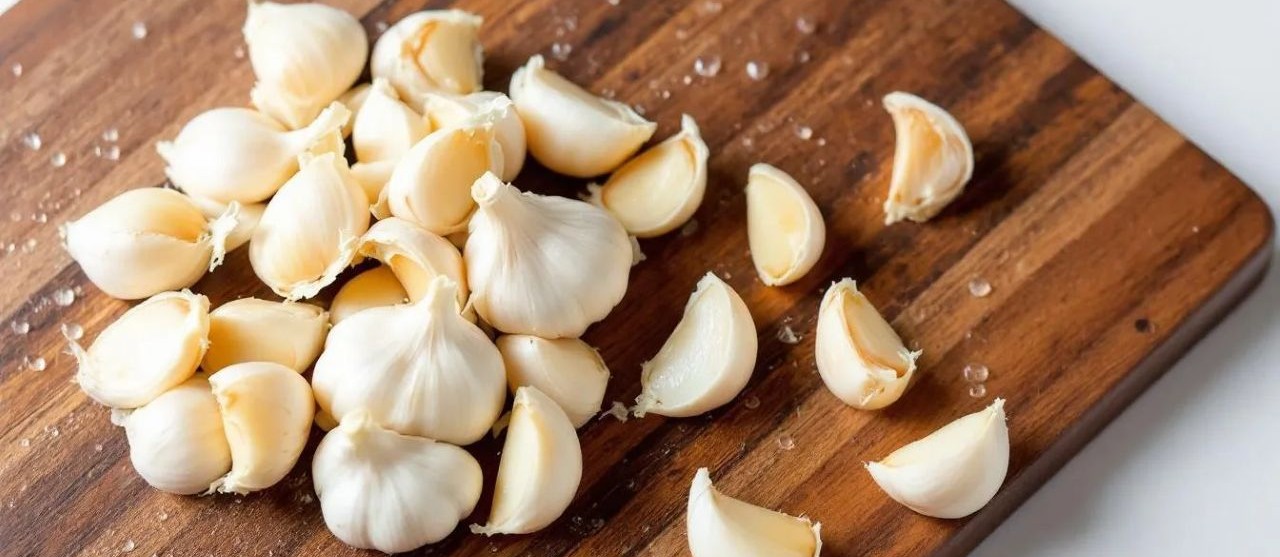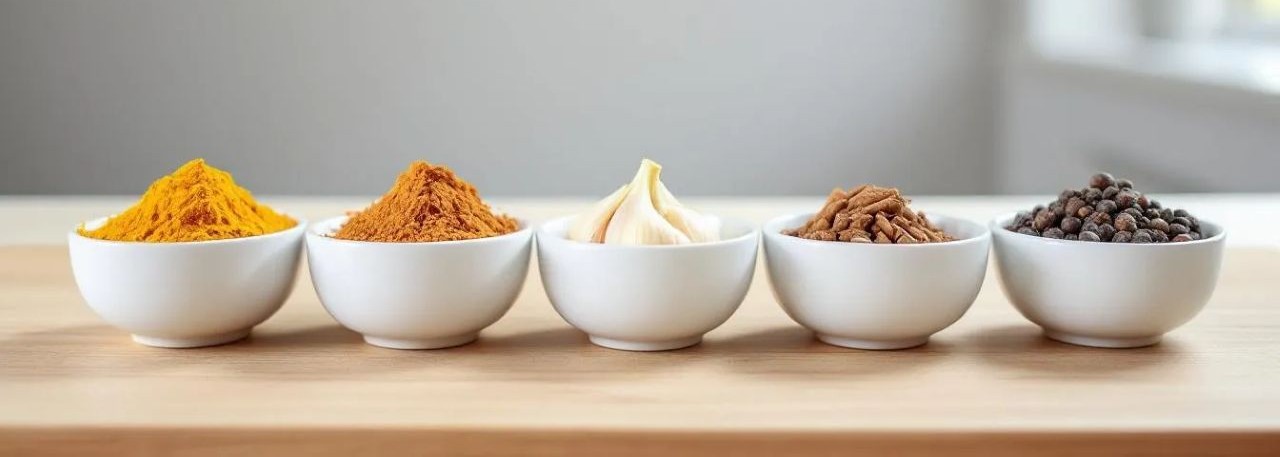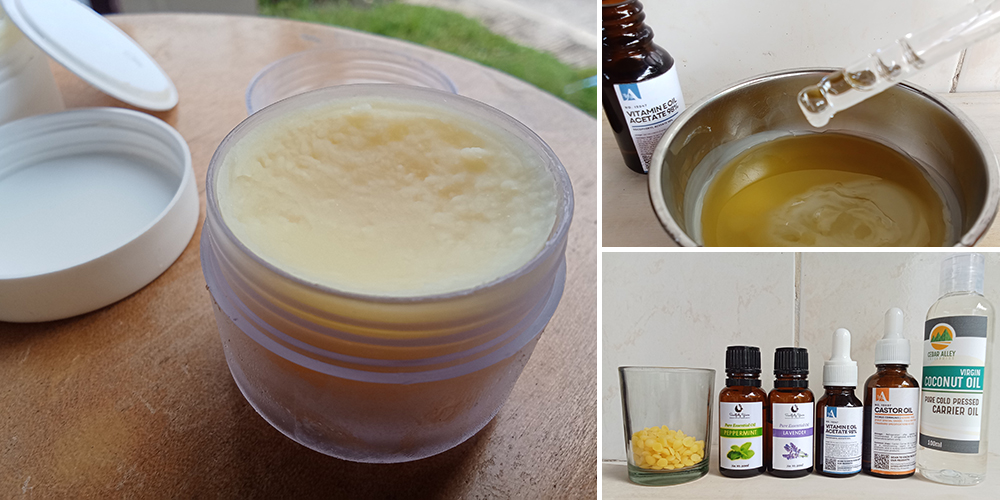
What Spice Stops Ear Ringing: Natural Solutions for Tinnitus Relief
If you’re among the 50 million Americans experiencing the frustrating phantom sounds of tinnitus, you’ve likely wondered: what spice stops ear ringing? The constant buzzing, ringing, or clicking in one or both ears can significantly impact your quality of life, leading many to seek natural alternatives when conventional treatments fall short.
The answer lies in your spice cabinet. Research suggests that certain culinary spices, particularly ginger, can help reduce tinnitus symptoms through their powerful anti-inflammatory and circulation-enhancing properties. While these natural remedies won’t cure tinnitus overnight, they offer a promising complementary approach to managing this challenging condition.
Key Takeaways
- Ginger is the primary spice that may help stop ear ringing by reducing inflammation and improving circulation
- Turmeric contains curcumin which has anti-inflammatory properties that can alleviate tinnitus symptoms
- Garlic may improve blood flow to the inner ear and reduce tinnitus severity
- Cinnamon can help regulate blood pressure and improve circulation to combat ear ringing
- These spices work best when combined with a healthy diet and lifestyle changes
- Results vary by individual and underlying causes of tinnitus
Understanding Tinnitus and Ear Ringing
Tinnitus manifests as the perception of phantom sounds—ringing, buzzing, clicking, or hissing—in the absence of external noise. This condition affects approximately 50 million Americans, with prevalence increasing with age. The phantom sounds can occur in one or both ears and range from barely noticeable to severely debilitating.
 Subjective tinnitus, the most common form, can only be heard by the person experiencing it. In contrast, objective tinnitus is rare and can sometimes be detected by healthcare providers during examination. Most cases fall into the subjective category, making diagnosis and treatment particularly challenging.
Subjective tinnitus, the most common form, can only be heard by the person experiencing it. In contrast, objective tinnitus is rare and can sometimes be detected by healthcare providers during examination. Most cases fall into the subjective category, making diagnosis and treatment particularly challenging.
Common causes include age related hearing loss, noise exposure, ear infections, certain medications, and disruptions in blood flow to the auditory system. Emerging research increasingly points to chronic inflammation and oxidative stress as key contributors to tinnitus development, which explains why anti-inflammatory spices show promise as natural remedies.
The connection between inflammation and tinnitus symptoms is particularly significant. When inflammatory processes affect the delicate structures of the inner ear, they can interfere with normal auditory function and potentially trigger the phantom sounds characteristic of tinnitus. This understanding has led researchers and practitioners to explore anti-inflammatory approaches, including dietary interventions with specific spices.
Ginger: The Top Spice for Tinnitus Relief
When exploring what spice stops ear ringing, ginger consistently emerges as the most promising option. This versatile root contains powerful bioactive compounds—gingerol and shogaol—that work synergistically to address two primary factors underlying many cases of tinnitus: inflammation and poor circulation.
Ginger’s anti-inflammatory properties help reduce pressure and inflammation in the auditory pathways, while its circulation-enhancing effects improve blood flow to the inner ear. This dual action makes it particularly effective for pressure-induced tinnitus and cases where vascular insufficiency plays a role.
Related: 50 Uses for Ginger
Research supporting ginger’s effectiveness in reducing ear pressure and inflammation comes primarily from studies on its general anti-inflammatory mechanisms rather than tinnitus-specific trials. However, the physiological basis for its benefits is well-established, and anecdotal reports from tinnitus sufferers consistently mention improvements when using ginger regularly.
The recommended daily dosage ranges from 1-3 grams of dried ginger or the fresh equivalent. This can be consumed in various forms: fresh ginger root, powdered ginger, ginger tea, or standardized supplements. The key is consistency—benefits typically emerge with regular, long-term use rather than sporadic consumption.
How to Use Ginger for Ear Ringing
The most popular and effective method for consuming ginger is through fresh ginger tea. To prepare this natural remedy, steep 3 slices of fresh ginger in hot water for 15 minutes, allowing the beneficial compounds to extract fully. This creates a potent anti-inflammatory beverage that can be consumed 2-3 times daily.
 For those who find fresh ginger too intense, ginger powder mixed with honey provides a gentler alternative. Start with 1/4 teaspoon of powdered ginger mixed with a teaspoon of raw honey, gradually increasing the amount as your tolerance builds. This combination not only makes ginger more palatable but also adds honey’s own anti-inflammatory benefits.
For those who find fresh ginger too intense, ginger powder mixed with honey provides a gentler alternative. Start with 1/4 teaspoon of powdered ginger mixed with a teaspoon of raw honey, gradually increasing the amount as your tolerance builds. This combination not only makes ginger more palatable but also adds honey’s own anti-inflammatory benefits.
Adding fresh ginger to smoothies and cooking represents another practical approach. Grate fresh ginger into morning smoothies with frozen bananas and other fruits for a refreshing summer drink that doubles as tinnitus treatment. When cooking chicken or preparing grilled chicken dishes, incorporate fresh ginger into marinades and seasonings.
A particularly effective preparation is ginger spice iced tea, which combines multiple beneficial ingredients. This refreshing summer drink includes fresh ginger, along with other anti-inflammatory spices like oregano, cilantro, sage, cinnamon, and a lemon slice for enhanced flavor and additional antioxidants. This combination addresses inflammation from multiple angles while providing a tasty treat that fits perfectly into summer season routines.
Ginger essential oil offers another application method, though it requires careful use around the ear area. Never apply essential oils directly into the ear canal, but gentle massage around the outer ear with properly diluted ginger oil may provide benefits through absorption and aromatherapy effects.
Turmeric: The Golden Spice for Inflammation
Turmeric stands as another powerful ally in the fight against tinnitus symptoms, earning recognition for its potent anti-inflammatory compound curcumin. This golden spice works by inhibiting pro-inflammatory cytokines and reducing oxidative stress—processes directly implicated in auditory system dysfunction and tinnitus generation.
Curcumin’s neuroprotective properties make it particularly valuable for tinnitus related to nerve damage or dysfunction. Research demonstrates that curcumin can help protect auditory nerves from damage while supporting overall neural health. These antioxidant and vasodilatory effects contribute to improved blood flow throughout the auditory system.
The challenge with turmeric lies in bioavailability—curcumin is poorly absorbed by the body when consumed alone. This limitation led to the discovery that combining turmeric with black pepper significantly enhances absorption. Piperine, the compound responsible for black pepper’s heat, can increase curcumin absorption by up to 2000 percent of your daily recommended intake.
Recommended curcumin supplementation typically ranges from 500-1000mg daily, though many people find benefit from incorporating turmeric into their regular cooking routine. Golden milk, a traditional preparation combining turmeric with ginger and cinnamon, represents an ideal way to consume multiple beneficial spices simultaneously.
The preparation involves warming milk (dairy or plant-based) with turmeric, fresh ginger, cinnamon, and a pinch of black pepper. This creates a soothing bedtime beverage that supports anti-inflammatory processes throughout the night. Many people report improved sleep quality alongside gradual improvements in tinnitus symptoms when consuming golden milk regularly.
Garlic: Natural Circulation Booster
Garlic’s reputation as a cardiovascular health promoter extends to its potential benefits for tinnitus, particularly cases related to circulation problems. Allicin, garlic’s primary sulfur-containing compound, demonstrates significant vasodilatory and antiplatelet activities that can improve blood flow to the inner ear.
 Poor circulation represents a contributing factor in many tinnitus cases, particularly those associated with high blood pressure or metabolic syndrome. When blood flow to the delicate structures of the inner ear becomes compromised, it can trigger or worsen tinnitus symptoms. Garlic’s ability to improve circulation addresses this underlying mechanism directly.
Poor circulation represents a contributing factor in many tinnitus cases, particularly those associated with high blood pressure or metabolic syndrome. When blood flow to the delicate structures of the inner ear becomes compromised, it can trigger or worsen tinnitus symptoms. Garlic’s ability to improve circulation addresses this underlying mechanism directly.
Beyond circulation benefits, garlic displays broad-spectrum antimicrobial properties that may help when tinnitus stems from recurring ear infections or chronic inflammatory conditions. This dual action makes garlic particularly valuable for individuals whose ear ringing correlates with infections or immune system dysfunction.
Related: You’re Using Garlic Wrong
The typical recommendation involves consuming 2-3 fresh garlic cloves daily or equivalent amounts in aged garlic extracts. Fresh garlic provides the highest allicin content, but aged garlic supplements offer convenience and eliminate the strong odor that deters some people from regular consumption.
Some traditional remedies suggest garlic oil drops for direct ear application, but this approach carries significant risks. Applying any oil directly to the ear canal can cause irritation, allergic reactions, or even damage to the delicate structures within. Always consult healthcare providers before considering topical ear treatments, as improper use can worsen tinnitus symptoms or cause hearing loss.
Cinnamon: Blood Sugar and Circulation Support
Cinnamon offers unique benefits for tinnitus management through its effects on blood pressure regulation and circulation improvement. Cinnamaldehyde, the spice’s principal active compound, demonstrates vasodilatory and anti-inflammatory properties that support optimal auditory function.
The connection between blood sugar levels and tinnitus symptoms represents an often-overlooked factor in natural treatment approaches. Blood sugar fluctuations can affect circulation and inflammation throughout the body, including the delicate auditory system. Cinnamon’s ability to help stabilize blood glucose levels may indirectly benefit those whose tinnitus correlates with metabolic issues.
Stable blood pressure plays a crucial role in auditory health, as fluctuating or elevated blood pressure can aggravate existing tinnitus. Some individuals notice their ear ringing intensifies during periods of stress or when blood pressure spikes. Cinnamon’s cardiovascular benefits may help maintain the stable circulation necessary for optimal inner ear function.
Ceylon cinnamon represents the preferred variety due to its lower coumarin content compared to cassia cinnamon. Coumarin can cause liver toxicity at high doses, making Ceylon cinnamon the safer choice for long-term daily consumption. The recommended intake of 1-2 teaspoons daily provides therapeutic benefits while remaining well within safety limits.
Cinnamon’s versatility makes it easy to incorporate into daily routines. Add it to morning oatmeal, blend into smoothies with frozen bananas for a healthy goodies treat, or sprinkle over sliced apples for just a sweet treat that supports tinnitus management. The spice pairs beautifully with other beneficial ingredients in both sweet and savory applications.
Other Beneficial Spices and Herbs
Several additional spices deserve consideration in a comprehensive approach to natural tinnitus management. While ginger remains the primary spice for ear ringing relief, these supporting players can enhance overall anti-inflammatory and circulatory benefits.
- Cayenne pepper, through its active compound capsaicin, may stimulate peripheral blood flow and help address vascular insufficiency contributing to tinnitus. The heat-generating properties of cayenne can improve circulation throughout the body, potentially benefiting the tiny blood vessels serving the inner ear. Start with small amounts and gradually increase tolerance, as excessive cayenne can cause digestive upset.
- Black pepper serves dual purposes in spice-based tinnitus protocols. Beyond its mild anti-inflammatory effects, black pepper significantly enhances the absorption of curcumin from turmeric. This synergistic relationship makes black pepper an essential component of any turmeric-based treatment approach.
- Cloves provide eugenol, a compound with notable analgesic and anti-inflammatory properties. While not specifically studied for tinnitus, eugenol’s pain-relieving effects may help individuals cope with the discomfort often associated with chronic ear ringing. Cloves can be added to warming teas or used in cooking.
- Cardamom has traditional use for stress relief and circulatory improvement—factors indirectly related to tinnitus management. Chronic stress can exacerbate tinnitus symptoms, making cardamom’s calming properties particularly valuable. This aromatic spice works well in both sweet and savory dishes, making regular consumption enjoyable.
These spices work synergistically when combined in comprehensive protocols. Consider creating spice blends that incorporate multiple beneficial ingredients, allowing for consistent daily intake while avoiding flavor fatigue from consuming the same preparations repeatedly.
Creating a Tinnitus-Fighting Spice Regimen
Developing an effective spice-based approach to tinnitus management requires consistency, patience, and strategic planning. The key lies in creating sustainable routines that incorporate multiple beneficial spices throughout the day while monitoring for improvements over time.
 Morning rituals set the foundation for daily anti-inflammatory support. Begin each day with ginger spice iced tea or warm ginger tea, depending on the season. This provides immediate anti-inflammatory compounds while establishing a consistent routine. During summer season months, cold preparations may be more appealing, while warming teas suit cooler weather.
Morning rituals set the foundation for daily anti-inflammatory support. Begin each day with ginger spice iced tea or warm ginger tea, depending on the season. This provides immediate anti-inflammatory compounds while establishing a consistent routine. During summer season months, cold preparations may be more appealing, while warming teas suit cooler weather.
Evening routines should focus on compounds that support circulation and relaxation. Golden milk combining turmeric, ginger, and cinnamon creates an ideal bedtime beverage that works throughout the night to reduce inflammation and support healing processes. The warming spices also promote relaxation, potentially improving sleep quality—an important factor in tinnitus management.
Meal planning strategies can incorporate tinnitus-fighting spices into regular cooking without requiring special preparations. When cooking chicken, use marinades featuring fresh ginger, garlic, and anti-inflammatory herbs. Grilled chicken seasoned with turmeric and other beneficial spices provides both nutrition and therapeutic compounds.
Consider creating signature spice blends that can be used across multiple dishes. Combine turmeric, ginger powder, cinnamon, and black pepper in ratios that suit your taste preferences. This blend works well in smoothies, sprinkled on oatmeal, mixed into yogurt, or used as a seasoning for various dishes.
Tracking systems help identify which combinations and dosages provide the most benefit for your specific situation. Keep a simple log noting which spices you consumed, in what quantities, and any changes in tinnitus symptoms. This personalized data becomes invaluable for optimizing your approach over time.
Seasonal variations can keep the regimen interesting while maintaining consistency. Summer season favorites might include iced tea variations, fresh ginger in smoothies with frozen bananas, and cold preparations that provide refreshing summer drink options. Winter months might emphasize warming teas, golden milk, and hearty soups featuring multiple beneficial spices.
Safety Considerations and Precautions
While culinary spices generally offer excellent safety profiles, using them in therapeutic quantities requires awareness of potential interactions and contraindications. The anti-inflammatory and circulation-affecting properties that make these spices beneficial for tinnitus can also create risks in certain situations.
- Ginger and garlic both exhibit anticoagulant properties that can increase bleeding risk, particularly concerning for individuals taking blood-thinning medications like warfarin or aspirin. These interactions can be serious, potentially leading to excessive bleeding during surgery or injury. Always consult healthcare providers before beginning intensive spice regimens if you take any medications affecting blood clotting.
- High doses of cinnamon, particularly cassia cinnamon, may exceed safe coumarin limits with prolonged use. Coumarin can cause liver toxicity in sensitive individuals, making Ceylon cinnamon the preferred choice for daily consumption. Even with Ceylon cinnamon, monitoring intake and taking periodic breaks from high-dose consumption provides additional safety margins.
- Gastrointestinal upset represents the most common side effect when initiating aggressive spice regimens. Start with smaller quantities and gradually increase to allow your digestive system to adapt. Some individuals find that consuming spices with food reduces stomach irritation compared to taking them on an empty stomach.
- Pregnancy and breastfeeding considerations vary by spice, with ginger generally considered safe in culinary amounts but requiring caution in therapeutic doses. Garlic and turmeric also warrant individualized assessment during pregnancy. These situations require personalized advice from healthcare providers familiar with both your medical history and current condition.
- Allergic reactions, while rare, can occur with any spice. Discontinue use immediately if you experience unusual symptoms like skin rashes, breathing difficulties, or swelling. Some individuals may have sensitivities to specific compounds in these spices without experiencing full allergic reactions.
Certain warning signs indicate the need for immediate medical attention regardless of your natural treatment approach. Sudden hearing loss, severe dizziness, neurological symptoms, or rapidly worsening tinnitus require prompt professional evaluation. Natural remedies should complement, not replace, appropriate medical care for serious conditions.
Combining Spices with Other Natural Treatments
Spice-based interventions work most effectively when integrated into comprehensive approaches that address multiple aspects of tinnitus management. Sound therapy, stress reduction techniques, and lifestyle modifications can enhance the benefits of anti-inflammatory spices while providing additional therapeutic mechanisms.
Sound therapy and masking techniques help retrain the brain’s response to tinnitus while spices work on underlying inflammatory processes. Many individuals find that combining consistent spice consumption with sound therapy produces better results than either approach alone. Tinnitus retraining therapy, a specific form of sound therapy, may be particularly enhanced by the anti-inflammatory support provided by regular spice consumption.
Dietary changes beyond spice additions can significantly impact tinnitus symptoms. Reducing consumption of salty meals, msg fatty foods, and sugar flavor enhancers may decrease inflammation and improve circulation. Focus on incorporating beneficial fats from sources like just one half avocado, while avoiding fatty foods that promote inflammation.
Exercise and stress reduction maximize the circulatory benefits provided by therapeutic spices. Regular physical activity improves blood flow throughout the body, including the delicate vessels serving the inner ear. When combined with circulation-enhancing spices like ginger and garlic, exercise creates synergistic benefits for vascular health.
Sleep hygiene practices support overall ear health while allowing anti-inflammatory processes to work optimally during rest periods. Evening consumption of relaxing spice preparations like golden milk can promote better sleep quality while providing overnight anti-inflammatory support.
Amplification devices like hearing aids may provide additional benefit when combined with anti-inflammatory approaches. Hearing aids masking devices can help manage tinnitus symptoms while spices work on underlying inflammatory processes. Some individuals find that reducing inflammation improves their tolerance for hearing aids and masking devices.
The timing of various interventions can optimize overall effectiveness. For example, consuming anti-inflammatory spices before activities that typically worsen tinnitus symptoms may provide protective benefits. Similarly, using sound therapy during peak tinnitus periods while maintaining consistent spice consumption throughout the day creates comprehensive coverage.
FAQ
How long does it take for spices to help with tinnitus?
Most people notice initial improvements within 2-4 weeks of consistent daily consumption, though significant benefits may take 2-3 months to fully develop. The anti-inflammatory effects of spices work gradually, requiring patience and consistency. Individual response times vary based on the underlying causes of tinnitus and overall health status.
Can I take spice supplements instead of using fresh spices?
Supplements can provide convenience and standardized dosages, but fresh spices often offer superior bioavailability and additional beneficial compounds. If using supplements, choose high-quality products from reputable manufacturers. Combining both approaches—supplements for consistency and fresh spices for enhanced benefits—often works well.
Are there any spices I should avoid if I have tinnitus?
Most culinary spices are safe for tinnitus sufferers, but very hot spices might temporarily worsen symptoms in some individuals. Avoid any spices that trigger allergic reactions or digestive upset. Those with circulatory conditions should be particularly cautious with blood-thinning spices like ginger and garlic.
What’s the best time of day to consume these spices for tinnitus relief?
Spreading consumption throughout the day maintains consistent anti-inflammatory levels. Morning ginger tea provides early anti-inflammatory support, while evening golden milk works overnight. Taking spices with meals often improves tolerance and absorption while reducing stomach irritation.
Can children use these spices for ear ringing?
Children can safely consume normal culinary amounts of these spices, but therapeutic doses require pediatric medical supervision. Tinnitus in children often has different underlying causes than adult cases, making professional evaluation essential before beginning any treatment approach.
How do I know if my tinnitus is caused by inflammation?
Inflammation-related tinnitus often correlates with other inflammatory conditions, varies with stress levels, and may respond to anti-inflammatory medications. However, determining the exact cause requires professional evaluation. The anti-inflammatory approach with spices is generally safe to try regardless of the underlying cause.
What should I do if spices don’t help my ear ringing?
If spices don’t provide relief after 3 months of consistent use, explore other underlying causes with healthcare providers. Tinnitus has many potential causes, and what works for one person may not work for another. Professional evaluation can identify other treatment options including conventional tinnitus treatment approaches.
Can I use essential oils of these spices instead of consuming them?
Essential oils can provide aromatherapy benefits and limited topical effects, but they don’t replace the systemic anti-inflammatory benefits of consuming spices. Never apply essential oils directly in or near the ear canal. If using topically, always dilute properly and test for skin sensitivity first.
Remember that this information is for educational and informational purposes only and does not constitute medical advice. Always receive personalized advice from qualified healthcare providers familiar with your specific situation. While spices offer promising natural support for tinnitus management, they work best as part of comprehensive approaches that may include professional tinnitus treatment options.
The journey to managing tinnitus through natural remedies requires patience, consistency, and realistic expectations. By incorporating these powerful anti-inflammatory spices into your daily routine while maintaining appropriate medical supervision, you’re taking proactive steps toward better auditory health. Start with one spice that appeals to you, track your response, and gradually build a personalized protocol that fits your lifestyle and provides meaningful relief from the challenging symptoms of chronic tinnitus.
You May Also Like:
Take This Daily to Fight Hearing Loss




